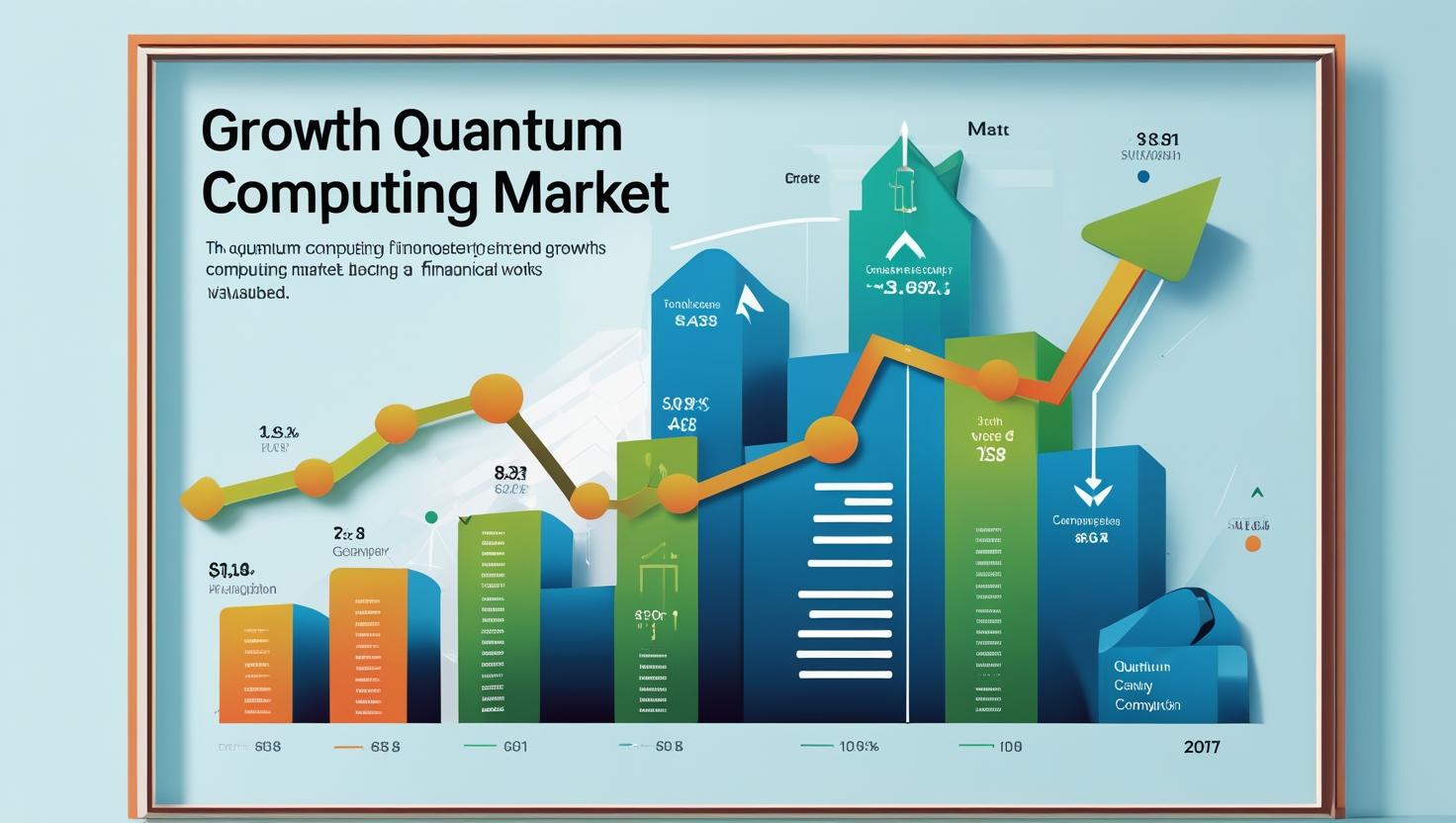As we move deeper into 2025, the quantum computing market is no longer a theoretical playground—it’s an active, high-stakes race among tech giants, startups, and governments. With market valuations soaring and commercial applications beginning to materialize, market share is becoming one of the clearest indicators of leadership and long-term potential in this revolutionary field.
A Market Poised for Transformation
The global Quantum Computing Market was valued at USD 1.3 billion in 2024 and is projected to grow from USD 1.8 billion in 2025 to USD 5.4 billion by 2029, at a CAGR of 32.7% during the forecast period. The drivers? A surge in enterprise use cases, public-private funding, and advancements in hardware and quantum algorithms.
But who holds the lion’s share of this rapidly growing market?
Top Companies by Market Share (2025 Estimates)
1. IBM (18–22%) – The Ecosystem Leader
IBM continues to lead the market with its IBM Quantum platform and Qiskit open-source framework. The company offers cloud-based access to quantum hardware, including its 127-qubit Eagle and 433-qubit Osprey processors. With a strong base of research partnerships and a growing developer community, IBM maintains a first-mover advantage.
2. Google (14–18%) – The Innovation Engine
Google made headlines with its “quantum supremacy” claim in 2019 and has since focused on building error-corrected, fault-tolerant systems. Its Sycamore processor and investments in superconducting qubits continue to position the company as one of the strongest contenders.
Download PDF Brochure @ https://www.marketsandmarkets.com/pdfdownloadNew.asp?id=144888301

3. Rigetti Computing (12–16%) – The Hybrid Trailblazer
Rigetti has carved out a niche by integrating quantum and classical computing in hybrid systems. With its Aspen series chips and participation in AWS Braket, Rigetti is focused on commercial applications, particularly in logistics, finance, and machine learning.
4. IonQ (10–14%) – The Trapped-Ion Challenger
IonQ is the leader in trapped-ion quantum computing, known for its high-fidelity qubits and scalable architecture. The company claims its systems outperform rivals on many benchmarking tests and has outlined an aggressive roadmap aiming to control .
5. D-Wave (8–12%) – The Commercialization Veteran
While D-Wave uses quantum annealing rather than gate-based models, it leads in real-world deployment volume. Its systems are already used in optimization problems for logistics, manufacturing, and the public sector.
6. Others (26–32%) – Startups and Global Innovators
A wide array of startups and global players are collectively making up a growing slice of the market. These include:
-
Quantinuum (Honeywell + Cambridge Quantum) – now valued at ~$20 billion
-
PsiQuantum – targeting fault-tolerant photonic systems
-
Xanadu – focused on photonic quantum computing in Canada
-
Zapata Computing, QC Ware, and Pasqal – developing quantum software platforms
Regional Share Insights
-
North America remains the largest market, with the U.S. home to most of the leading players and receiving the bulk of venture capital funding.
-
Europe is catching up with strong government support and programs like the European Quantum Flagship.
-
Asia-Pacific, particularly China and Japan, are investing heavily in both hardware development and quantum research labs.
The Market Share Outlook Beyond 2025
As quantum hardware becomes more reliable and scalable, and software stacks mature, market share may shift rapidly. Companies that can deliver:
-
Error-corrected qubits
-
Robust cloud access
-
Real-world performance at scale
…will likely dominate the next phase of market evolution.
Emerging partnerships between quantum companies and sectors like finance, pharma, logistics, and aerospace will further define commercial success. Long-term, the winners will be those who can turn quantum advantage into enterprise ROI.
Conclusion: It’s Still Early Days
While IBM and Google currently hold the top spots in terms of market share, the race is far from over. With billions in investment and major breakthroughs on the horizon, the quantum computing landscape in 2025 is dynamic, competitive, and full of surprises. As the technology matures, market leadership could change hands faster than in any previous tech revolution.
